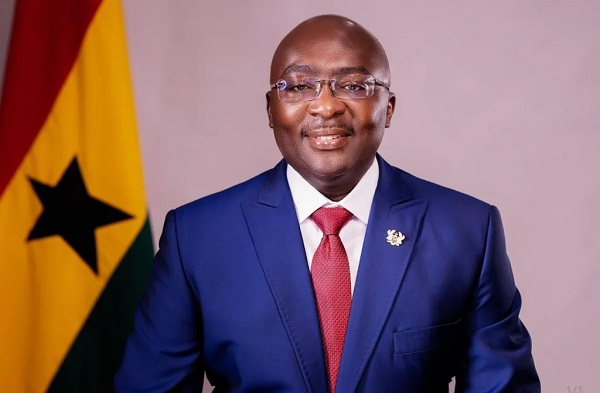Trump's One-and-Done Approach to Military Force - The Atlantic
Weeks before he ended his first term, in December 2020, President Donald Trump was outraged that leaders in Tehran had announced plans to accelerate its nuclear program. He had a simple question: Why don’t we just bomb Iran?
His advisers walked him through the options but cautioned that such an operation would likely result in the downing of American planes and the start of a regional war. Trump dropped the idea. “He didn’t want to leave a shit sandwich for his successor,” a former official told us. “He also recognized it wasn’t time yet.”
Last weekend, with Iranian defenses worn to a nub by days of Israeli attacks, the time finally came. The surprise assault by B-2 bombers, which dropped 30,000-pound “bunker-buster” bombs onto underground enrichment facilities, marked the most dramatic military action that Trump has ordered in either of his terms as president. The attack showed how Trump’s attitudes toward the use of force have evolved as he has grown more confident in his instincts as commander in chief and surrounded himself with advisers disinclined to challenge him. But it also reflected what hasn’t changed: Trump is willing to embrace serious risk in approving military operations, so long as it’s in a discrete burst rather than a sustained campaign. The president described the weekend bombing as a one-off that “obliterated” Iran’s nuclear program, not the start of a larger war.
If any Trump doctrine for military action does exist, it is perhaps best understood as the One-and-Done Doctrine.
Read: The new MAGA world order
“Trump likes to think he can fire a bullet and leave the O.K. Corral, that the first move is decisive and the end of activity,” Kori Schake, the director of defense and foreign-policy studies at the American Enterprise Institute and a contributing writer at The Atlantic, told us.
It’s not clear, however, that one attack will be enough. Assessments of the operation’s impact on Iran’s nuclear capability are divided, and Tehran is already vowing to push ahead, suggesting that additional U.S. action may be required if a diplomatic solution isn’t reached.
During his first term, Trump railed against the “endless” and “forever wars” he had inherited, clashing repeatedly with his top security advisers as he sought to end counterinsurgent missions and pull troops from allied nations as part of his “America First” agenda. He also demonstrated willingness to deploy military force at significant moments, lobbing cruise missiles at Syria after chemical-weapons attacks, intensifying the air campaign against the Islamic State, and authorizing high-stakes operations such as the commando raid targeting ISIS boss Abu Bakr al-Baghdadi and the drone strike killing Iranian military leader Qassem Soleimani.
Trump took office in 2017 boasting that he knew better than “the generals.” But just days into the job, the first military operation he authorized—a hostage-recovery raid in Yemen—went badly awry: A Navy SEAL and numerous civilians were killed, and a $70 million aircraft was destroyed.
Other ventures were more successful: Trump oversaw a surge in progress in the campaign against ISIS, which began under President Barack Obama, as U.S. war planes beat back the militants in Syria. But when the advances slowed, Trump began to push for an end to the American presence—much to the chagrin of his military advisers. The turn revealed Trump’s discomfort with sustained campaigns that didn’t show measurable results, or that carried any whiff of a quagmire. In Afghanistan, the president pressed for a negotiated exit after the initial surge in military action he authorized—including the bombing of drug labs and the use of an explosive dubbed the “Mother of All Bombs”—failed to yield decisive results.
All the while, Trump was feuding with some of his closest military aides. Jim Mattis, the Marine general who served as Trump’s first defense secretary, resigned in protest in 2018 after having attempted to block what he viewed as dangerous actions by the president. Mattis even defied demands from then–National Security Adviser H. R. McMaster for the Pentagon to send options for striking Iran. Trump also railed against historic arrangements he believed exploited American generosity, including U.S. support for NATO and the presence of American troops in places such as Germany and South Korea.
Read: A senior White House official defines the Trump doctrine: ‘We’re America, bitch’
One outside adviser said that characterizing Trump as an isolationist misses the mark. “He has a pretty well-established history of dramatic short bursts of kinetic action, but not sustained military involvement in things,” the adviser told us. He suggested a precedent in President Andrew Jackson, who embraced nationalism and economically motivated expansionism for 19th-century America. Trump “doesn’t have an ideology, but if you had to try to sum it up, it’s more Jacksonian than isolationist or anti-interventionist,” the adviser told us.
Many of the president’s advisers told us they believe that his blunt, tough-guy talk and his unpredictable tendencies—akin to Richard Nixon’s “madman theory”—have been effective in establishing deterrence with foreign adversaries. But Trump’s volatility has also at times frustrated his own advisers. In 2019, he made an eleventh-hour decision to call off a planned retaliatory strike on Iranian missile batteries in response to the country’s downing of a large U.S. drone over the Strait of Hormuz. The decision was based on an estimate of potential casualties on the ground in Iran that one military official said was wildly inaccurate. Then–National Security Adviser John Bolton and Secretary of State Mike Pompeo were aghast at the choice to call off the strike, which they believed was proportionate and would deter future attacks.
“He’s capable of changing his mind right up until the very end, and when he’s finally decided that the decision has been carried out and he can’t reverse it, it’s very stressful for him,” Bolton told us. He said the recent Iran strikes tracked with the president’s preference for stand-alone, epic actions: “It fits with his short attention span, and it fits with the fact he doesn’t have a philosophy; he doesn’t have a grand strategy.”
When Bolton worked in the first Trump administration, he was frequently at odds with the president. This time around, Trump has few people questioning his calls. Even those who are leery of foreign entanglement have fallen in line to support the strikes. Vice President J. D. Vance, for instance, has led the charge in recent days in messaging that the Iran operation was not about regime change, but rather the more narrow goal of debilitating the country’s nuclear program.
Vance is “going to be supportive of whatever the president wants to do, and there’s never going to be any daylight between the two of them, even privately,” the outside adviser told us.
Marco Rubio, now serving as secretary of state and national security adviser, has been “very deferential” to Trump, the adviser added. CIA Director John Ratcliffe, meanwhile, has kept to his position’s traditional lane, laying out the intelligence but not pushing any particular policy actions. “If he is putting his thumb on the scale one way or the other, then people aren’t going to trust his intelligence,” the adviser told us.
The White House is adamant both that Trump gets the advice he needs and that he never gets his decisions wrong. “President Trump has assembled a talented, world-class team who evaluate all angles of any given issue to provide the President a fulsome view,” White House Deputy Press Secretary Anna Kelly wrote to us in an emailed statement. “Ultimately, the President evaluates all options and makes the decision he feels is best for the country—and he has been proven right about everything time and again.”
Retired General Frank McKenzie, who commanded U.S. forces in the Middle East when Trump targeted Soleimani, noted that the most dire possible scenarios following the Soleimani strike and after those on the nuclear sites haven’t borne out—at least so far. That may be because, in his view, Trump has accrued more credibility than other American presidents when it comes to threatening Iran.
“He’s got a verifiable, auditable trail. He struck Iran twice; no other American president has done that,” McKenzie told us.
Read: Trump knows Iran has wanted him dead
Trump’s Iran operation marked an unexpected deviation from what has been his administration’s second-term focus on negotiations. Trump has said he wants diplomatic deals that not only halt Iran’s nuclear ambitions but also end the wars in Ukraine, Gaza, and beyond. Now Trump may have more leverage in those talks.
“This guy really wanted a negotiation, and now he’s done his one-and-done, and he wants to go back to negotiations,” Ian Bremmer, who leads the consultancy and research firm Eurasia Group, told us.
One of Trump’s more curious moves since returning to office was his decision to authorize a weeks-long air campaign against Houthi rebels in Yemen. The Biden administration had occasionally struck military targets in Yemen but had judged that the Houthis were unlikely to drop their tactic of attacking commercial and naval vessels, no matter what kind of military beating they received.
Trump abruptly halted the campaign and declared victory in May, even though the Houthis retain significant military capability and vowed to continue their assaults on Israel. But Trump had moved on. That may not be so easy if Iran resumes its nuclear activity or continues to support proxy militant groups throughout the Middle East.
“You’re going to have a hard time ignoring Iran,” the former official told us, “and it’s going to be much harder to change the subject.”











:max_bytes(150000):strip_icc()/IMG_3349-1e84fd6790df4ce39e940395e00e49bd.jpeg)